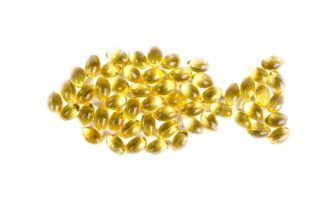Introduction to Tyrosine and Its Role in the Body and Brain Function
Tyrosine, also known as L-tyrosine, is a naturally occurring amino acid crucial for the production of several important neurotransmitters, including dopamine, norepinephrine, and adrenaline. These chemicals play vital roles in regulating mood, cognitive function, and the body’s stress response. As a precursor to these neurotransmitters, tyrosine is essential for maintaining mental alertness, focus, and overall brain health. However, many fitness enthusiasts and health experts are now turning to tyrosine supplements to enhance these effects further.
In this blog post, we will delve into the benefits and risks associated with tyrosine supplementation, explore recommended dosages, and provide insights from experts and real-life experiences to help you make an informed decision about incorporating this supplement into your health regimen.

Benefits of Tyrosine Supplementation
Enhanced Cognitive Function and Focus
One of the most compelling benefits of tyrosine supplementation is its potential to enhance cognitive function and improve focus. Tyrosine serves as a precursor to dopamine, a neurotransmitter that plays a key role in motivation, attention, and memory. Studies have shown that tyrosine supplementation can help maintain cognitive performance under stressful conditions, such as during demanding tasks or prolonged periods of wakefulness.
Key Points:
- Supports mental alertness and concentration.
- May improve memory and learning capabilities.
- Helps maintain cognitive performance under stress.
Stress Reduction and Improved Mood
Tyrosine is also involved in the production of norepinephrine and adrenaline, which are critical for the body’s stress response. Supplementing with tyrosine can help replenish depleted levels of these neurotransmitters, potentially reducing stress and improving mood. For individuals facing high-stress situations or those prone to anxiety, tyrosine supplementation may offer a natural way to manage these challenges.
Key Points:
- Helps regulate the body’s stress response.
- May reduce anxiety and improve overall mood.
- Supports mental resilience during stressful periods.
Support for Physical Performance and Endurance
Fitness enthusiasts often seek supplements that can enhance physical performance and endurance. Tyrosine has been shown to reduce the perception of fatigue during prolonged exercise, potentially allowing athletes to push harder and longer. Additionally, by supporting the production of adrenaline, tyrosine may enhance physical performance and reaction times.
Key Points:
- Reduces the perception of fatigue during exercise.
- May enhance physical performance and reaction times.
- Supports endurance during prolonged physical activity.

Risks and Side Effects of Tyrosine Supplementation
Overstimulation and Insomnia
While tyrosine can boost alertness and focus, excessive supplementation may lead to overstimulation. This can result in symptoms such as jitteriness, anxiety, and difficulty sleeping. To avoid these side effects, it is crucial to adhere to recommended dosages and avoid taking tyrosine supplements too close to bedtime.
Key Points:
- Excessive tyrosine intake may cause overstimulation.
- Can lead to jitteriness and anxiety.
- Avoid taking supplements close to bedtime to prevent insomnia.
Potential Interaction with Medications
Tyrosine supplements may interact with certain medications, particularly those affecting neurotransmitter levels, such as MAO inhibitors and thyroid medications. If you are taking any medications, it is essential to consult with a healthcare professional before starting tyrosine supplementation to avoid potential interactions.
Key Points:
- May interact with medications affecting neurotransmitter levels.
- Consult with a healthcare professional before starting supplementation.
Allergic Reactions and Gastrointestinal Issues
As with any supplement, some individuals may experience allergic reactions or gastrointestinal issues when taking tyrosine. Common side effects include nausea, heartburn, and stomach cramps. If you experience any adverse reactions, discontinue use and consult a healthcare provider.
Key Points:
- Potential for allergic reactions and gastrointestinal issues.
- Common side effects include nausea, heartburn, and stomach cramps.
- Discontinue use if adverse reactions occur.
Recommended Dosage and Usage
Safe and Effective Dosage Guidelines
The appropriate dosage of tyrosine can vary depending on individual needs and goals. However, a common dosage range is between 500 mg to 2,000 mg per day. It is advisable to start with a lower dose and gradually increase it while monitoring for any adverse effects.
Key Points:
- Common dosage range: 500 mg to 2,000 mg per day.
- Start with a lower dose and gradually increase.
- Monitor for adverse effects.
Best Times to Take Tyrosine for Maximum Benefit
To maximize the benefits of tyrosine supplementation, it is best to take it on an empty stomach, either in the morning or before engaging in mentally or physically demanding activities. Avoid taking tyrosine supplements late in the day to prevent potential sleep disturbances.
Key Points:
- Take on an empty stomach for better absorption.
- Ideal times: morning or before demanding activities.
- Avoid late-day supplementation to prevent sleep disturbances.
Conclusion: Balancing the Benefits and Risks for Informed Supplementation Decisions
Tyrosine supplementation offers several potential benefits, including enhanced cognitive function, stress reduction, and improved physical performance. However, it is essential to balance these benefits with the potential risks, such as overstimulation, medication interactions, and gastrointestinal issues. By adhering to recommended dosages and consulting with healthcare professionals, individuals can make informed decisions about incorporating tyrosine into their health regimen.
Call to Action
Have you tried tyrosine supplements? Share your experiences or ask questions in the comments below! For more insights into optimizing your health and fitness journey, explore our other blog posts and stay informed about the latest trends and research.
For more about Tyrosine supplementation check out this link









